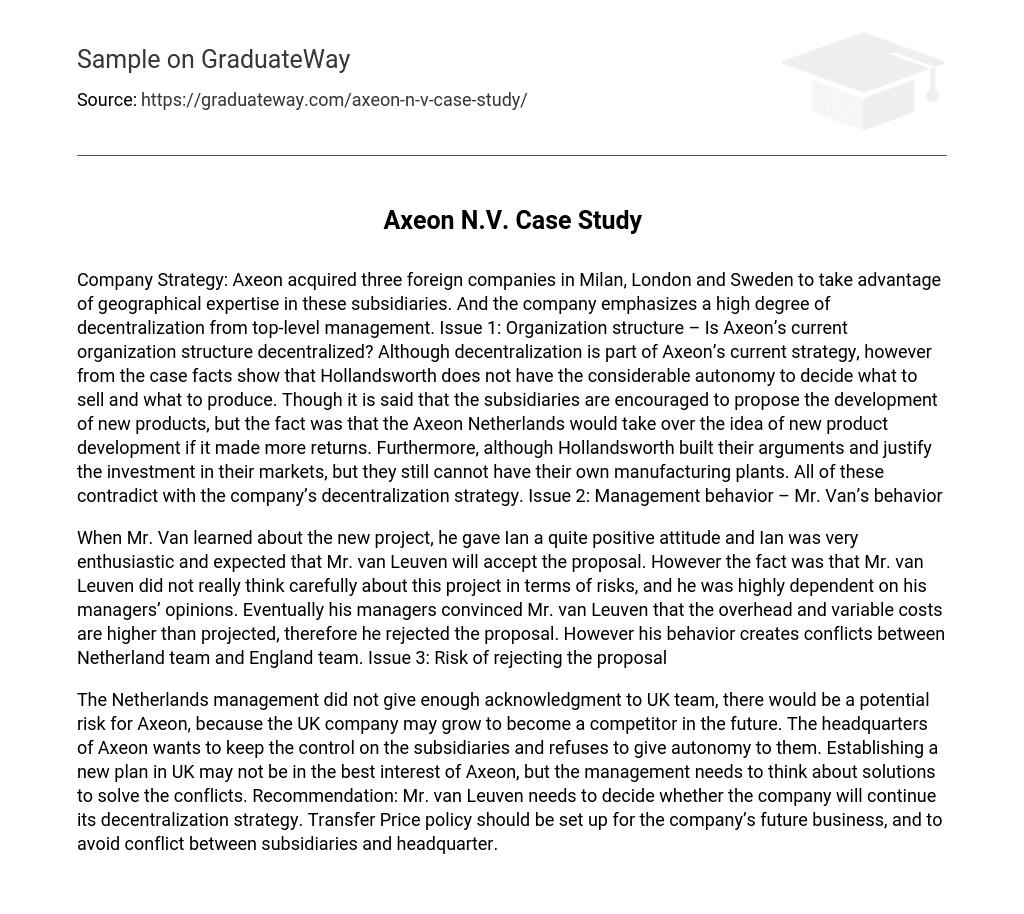Company Strategy: Axeon acquired three foreign companies in Milan, London, and Sweden to leverage the geographical expertise present in these subsidiaries. The company places great emphasis on a high level of decentralization from top-level management.
Issue 1: Organization structure – Is Axeon’s current organizational structure decentralized? While decentralization is indeed a part of Axeon’s current strategy, the case facts indicate that Hollandsworth lacks significant autonomy in deciding what to sell and produce. Although the subsidiaries are encouraged to propose new product developments, Axeon Netherlands would seize control of the idea if it yielded greater returns. Additionally, Hollandsworth is unable to establish their own manufacturing plants, further contradicting the company’s decentralization strategy.
Issue 2: Management behavior – Mr. Van’s behavior
Upon hearing about the new project, Mr. Van responded positively, raising hopes that Mr. van Leuven would accept the proposal. However, he failed to fully assess the risks associated with the project and heavily relied on his managers’ viewpoints. Eventually, his managers were successful in persuading him that the costs exceeded expectations, resulting in a rejection of the proposal. Consequently, this decision created tension between the Netherlands and England teams. Issue 3: Risk of rejecting the proposal.
The lack of acknowledgment from the Netherlands management toward the UK team poses a potential risk for Axeon as the UK company could become a future competitor. Although the Axeon headquarters aims to maintain control over its subsidiaries, it is crucial to find solutions to the conflicts. While establishing a new plan in the UK may not be optimal for Axeon, Mr. van Leuven must decide whether to continue with the decentralization strategy. Implementing a Transfer Price policy is recommended for the company’s future business and to prevent conflicts between subsidiaries and the headquarters.





